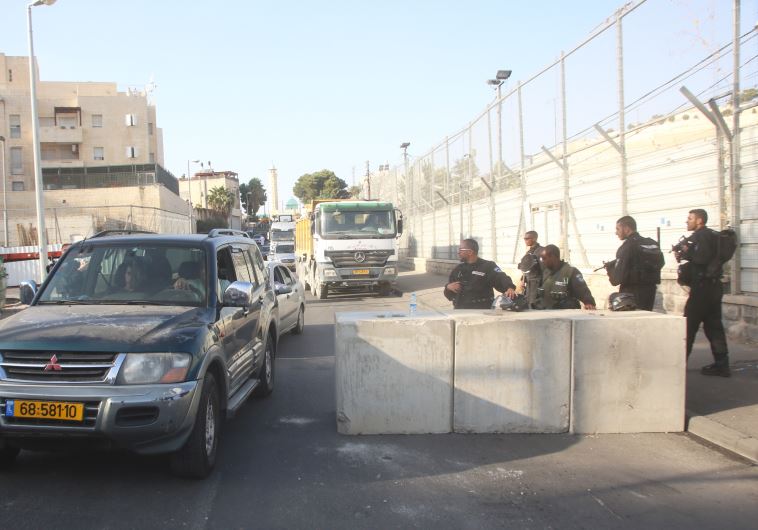Experts weigh in: How can Israel quash this wave of terror?
Former national security adviser Uzi Dayan: Now is the time to fight back, rather than talking about long-term issues.
 Concrete barriers set up in east Jerusalem neighborhoods(photo credit: MARC ISRAEL SELLEM/THE JERUSALEM POST)Updated:
Concrete barriers set up in east Jerusalem neighborhoods(photo credit: MARC ISRAEL SELLEM/THE JERUSALEM POST)Updated: